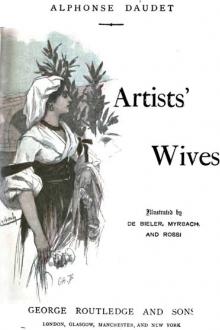It was a long time since we had met when I received one morning a line of his
dear little handwriting, formerly so firm, now trembling and uncertain. “We are
in Paris. Come and see me. I am so dull.” I found him with his wife, his child
and his dogs, in a lugubrious little apartment in the Batignolles. The disorder
which in this narrow space could not be spread about, seemed more hideous
even than in the country. While the child and dogs rolled about in rooms the size
of a chessboard compartment, Heurtebise; who was ill, lay with his face to the
wall, in a state of utter prostration. His wife, dressed out as usual, and ever
placid, hardly looked at him. “I don’t know what is the matter with him,” she said
to me with a gesture of indifference. On seeing me he had for a moment a return
of gaiety, and a minute of his old hearty laugh, but it was soon stifled. As they
had kept up in Paris all their suburban habits, there appeared at the breakfast
hour, in the midst of this household disorganized by poverty and illness, a
parasite, a seedy looking little bald man, cranky and peevish, of whom they
always spoke as “the man who has read Proudhon.” It was thus that Heurtebise,
who probably had never known his name, introduced him to everybody. When
he was asked “Who is that?” he unhesitatingly replied, “Oh! a very clever fellow,
who has thoroughly studied Proudhon.” His knowledge was certainly not very
apparent, for this deep thinker rarely made himself heard except to complain at
table of an ill-cooked roast or a spoilt sauce. On this occasion, the man who had
read Proudhon declared that the breakfast was detestable, which however did not
prevent his devouring the larger half of it himself.
Artists’ Wives
by – Alphonse Daudet
